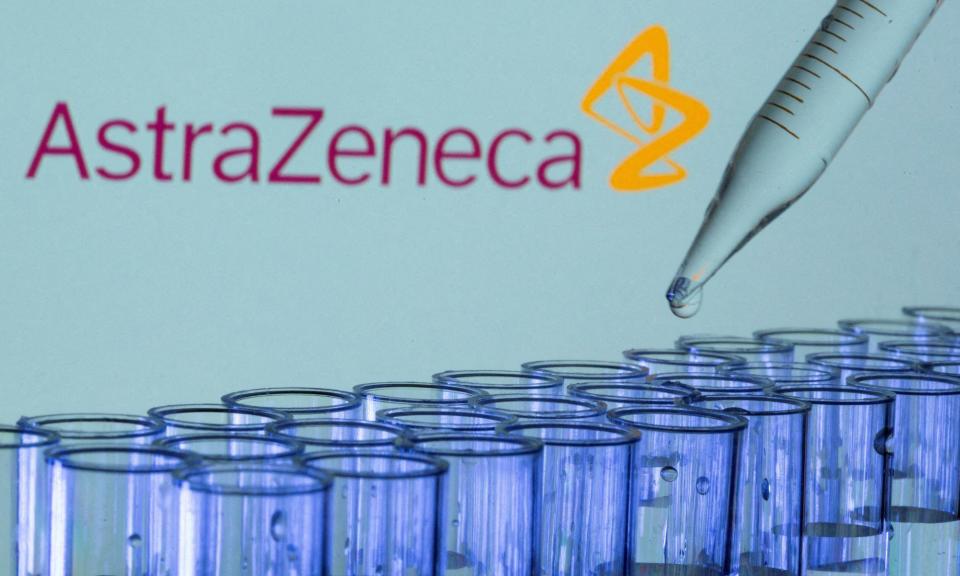AstraZeneca aims to nearly double revenues to $80bn by 2030

Britain’s biggest drugmaker, AstraZeneca, has set out a bold ambition to reach $80bn (£63bn) in revenues by 2030 from treatments for cancer, rare diseases and other conditions, by launching 20 major new medicines before the end of the decade.
As the company presented its growth plans to shareholders at its labs and corporate headquarters in Cambridge, England, its chief executive, Pascal Soriot, said 12 of the 20 new drugs would have the potential to generate more than $5bn in annual revenues at their peak, including five cancer treatments.
The Anglo-Swedish pharmaceutical company made revenues of $45.8bn last year, achieving a year early the goal it had set out as part of its defence against a £70bn hostile takeover approach from US rival Pfizer in 2014.
“Today AstraZeneca announces a new era of growth,” Soriot said. “The breadth of our portfolio together with continued investment in innovation supports sustained growth well past the end of the decade.”
He added that the firm’s strong position in emerging markets would be vital to achieving its growth targets. It is the largest drugmaker by sales in China and has a major research and development centre in Shanghai.
With Soriot at the helm, AstraZeneca has revamped its drugs pipeline and developed a strong portfolio of cancer, cardiovascular, metabolic, respiratory and rare disease medicines.
However, its share price growth has been sluggish in the past year, slowing to just under 2%. Its best-selling diabetes pill, Farxiga, starts to lose patent protection from next year, and revenues in the industry will also come under pressure from reforms that will enable the US government to negotiate drug prices for the first time.
Earlier this month, UK drugmaker said it had begun the worldwide withdrawal of its Covid-19 jab due to a “surplus of available updated vaccines”. Its vaccine, which saved more than 6.5 million lives according to independent estimates, cannot be adapted to new variants as easily as the Pfizer/BioNTech and Moderna shots, which are based on mRNA technology.
On Monday, AstraZeneca announced plans to build a $1.5bn factory in Singapore to manufacture a promising new generation of cancer-killing drugs called antibody-drug conjugates. They are engineered antibodies that bind to tumour cells and release chemicals that kill those cells without damaging surrounding healthy tissue.
The company is also making a push into the weight-loss drug market with an obesity and diabetes pill it licensed from China’s Eccogene in November.
Russ Mould, the investment director at the stockbroker AJ Bell, said AstraZeneca was “reaching for the stars” with its new sales target, which sent its shares up by 1.2%, making them the second-biggest riser on the FTSE 100 on Tuesday.
Mould added: “An easy way for AstraZeneca to achieve such a goal would be to go on a spending spree and buy up rival companies. However, AstraZeneca implies it will hit the goal through organic means which would be all the more impressive.
“Chief executive Pascal Soriot is no stranger to controversy over the scale of his pay packet so perhaps he is trying to justify the large renumeration with the new growth plan. Achieving the goal would imply significant value generation for shareholders and no doubt himself given that part of his bonus scheme will be based on company performance.”
Soriot is in line for a maximum pay package of £18.7m this year, which was described by the High Pay Centre thinktank as “excessive” and sparked a shareholder rebellion last month.
Mould warned that developing new medicines is not an easy task, as there is a high failure rate, and revenues of medicines are drastically reduced once patents expire, allowing generic drugmakers to produce cheaper versions.

 Yahoo Finance
Yahoo Finance 